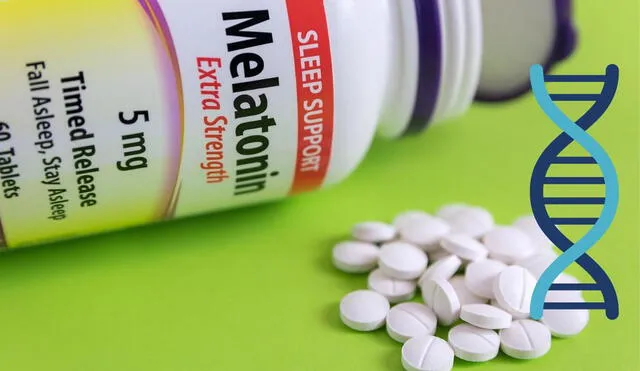Can melatonin protect your DNA? Scientists reveal powerful new benefits
Emerging research highlights melatonin's potential beyond sleep regulation, suggesting it might play a pivotal role in DNA repair mechanisms.

Melatonin is used as a supplement for better sleep, as it regulates circadian rhythms. It also acts as a powerful antioxidant, reducing oxidative stress and inflammation. Furthermore, melatonin may boost immune function, improve brain health, slow aging, and support heart and metabolic health. But, what about DNA repair? The benefits found in melatonin will surprise you.
A recent randomized, placebo-controlled trial investigated melatonin's effect on oxidative DNA damage repair among night shift workers. Participants who took a daily 3 mg melatonin supplement before daytime sleep exhibited an 80% increase in urinary 8-hydroxy-2'-deoxyguanosine (8-OH-dG) levels, a biomarker indicating enhanced DNA repair capacity, compared to those on a placebo. This finding suggests melatonin supplementation may bolster the body's ability to rectify DNA damage induced by oxidative stress.
Benefits of melatonin: Protection of DNA
The recent study, published in Occupational & Environmental Medicine, investigated the impact of melatonin supplementation on the body's ability to repair oxidative DNA damage in night shift workers. Night shift workers often experience circadian rhythm disruptions, leading to reduced melatonin production and increased oxidative DNA damage.
The study's results imply that melatonin supplementation could counteract these adverse effects by enhancing DNA repair mechanisms. However, researchers emphasize the necessity for larger-scale trials to determine optimal dosing and assess long-term safety before making definitive recommendations.
Could melatonin help decrease the risk of cancer?
The researchers highlight that increased oxidative DNA damage, caused by a reduced ability to repair DNA, could be a key factor contributing to the cancer risk associated with night shift work. They found melatonin might serve as a protective measure against some negative health effects linked to disrupted circadian rhythms.
The researchers suggest that if future studies confirm their findings, melatonin supplementation could become a practical strategy to help lower cancer risk among night shift workers. However, they also stress the importance of assessing long-term efficacy, as workers who spend years on night shifts would need to take melatonin consistently to gain potential cancer prevention benefits.












